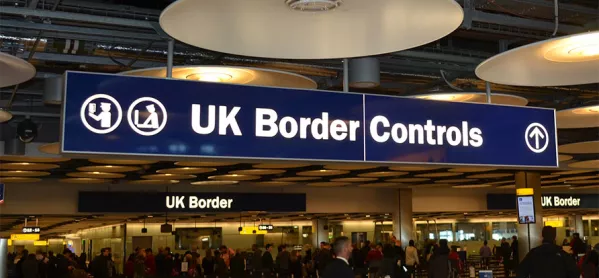It’s the cold civil service language that really gets me. The news that from March, a teacher whose salary is deemed to be too low could be turned away at the border is bad enough. But delivered in terrible bureaucratic lingo makes it even worse.
The government’s long-awaited immigration White Paper, published this morning, “models” what would happen if and when - in a post-Brexit Britain - the Home Office brings in a salary threshold of £30,000 for immigrants.
Both the White Paper and home secretary Sajid Javid’s statement in the House of Commons appear to forget that these people are teachers who want to work in our schools - schools that desperately need teachers, and with students who desperately need their teaching.
Along with nurses and midwives, teachers will apparently fall into a category described catchily as “high wage and public sector contribution, heavy reliance on long-term EEA (European Economic Area) migrant labour and hard to adjust”.
The White Paper adds: “These occupations have high economic or public value, have been heavily reliant on long-term EEA migrant labour and may find adjustment to labour market changes difficult.”
Turning away teachers
Or, to put it another way, the education sector’s fragile labour market is likely to be totally screwed by a decision to turn away teachers who probably won’t earn more than £30,000 per year.
(It is worth noting that last year more than 3,500 teachers from Europe were registered with QTS, and presumably a large proportion of these wouldn’t make it under the new regime.)
When challenged on the damaging consequences of this potential threshold by teacher-turned-Labour MP Emma Hardy, Javid appeared neither to know nor to care about teachers and schools. “It’s clear that we have committed to make sure when the threshold is set it is one that we believe is right for the needs of the country and all parts, whether it is our schools or otherwise.”
The immigration system, Javid went on, must give employers an incentive to invest in the skills of local people, and “immigration should never be thought of as a substitute to investment in local people”.
All of which demonstrates how little the needs of schools were taken into account in the drawing-up of this mess of a policy.
Once again, the interests of our schools and our children appear to be playing second fiddle to the requirements of Brexit and the political needs of the most desperate government of living memory.
Ed Dorrell is head of content at Tes




